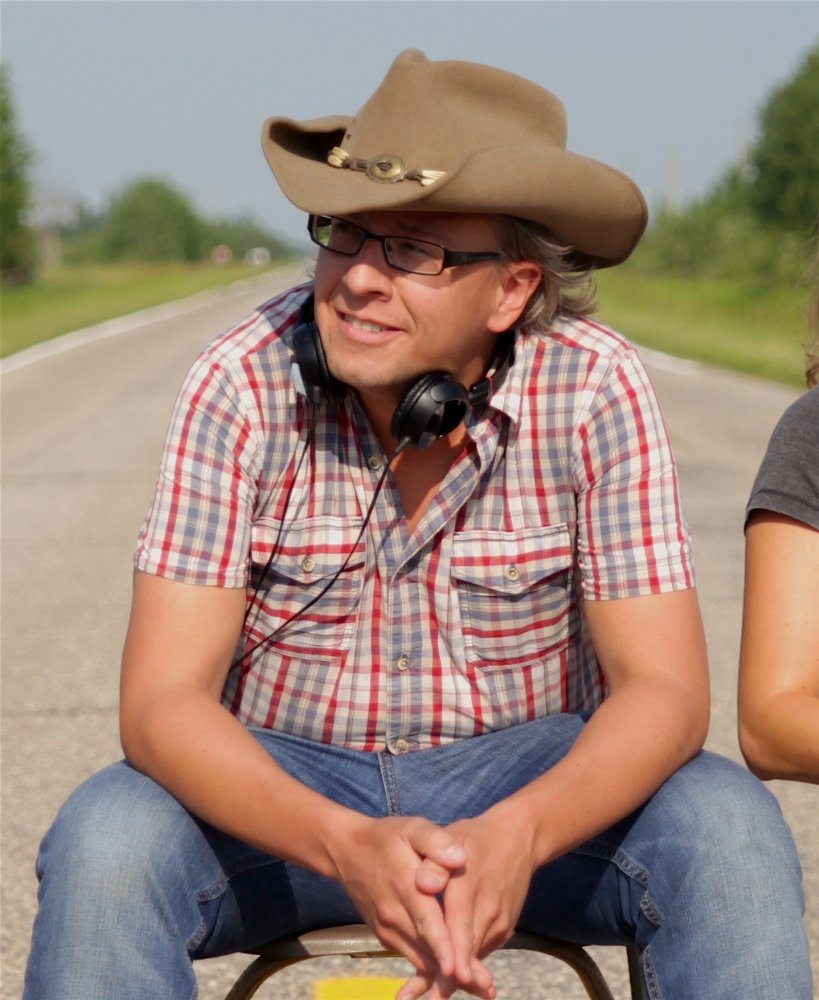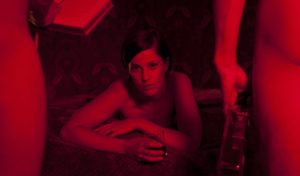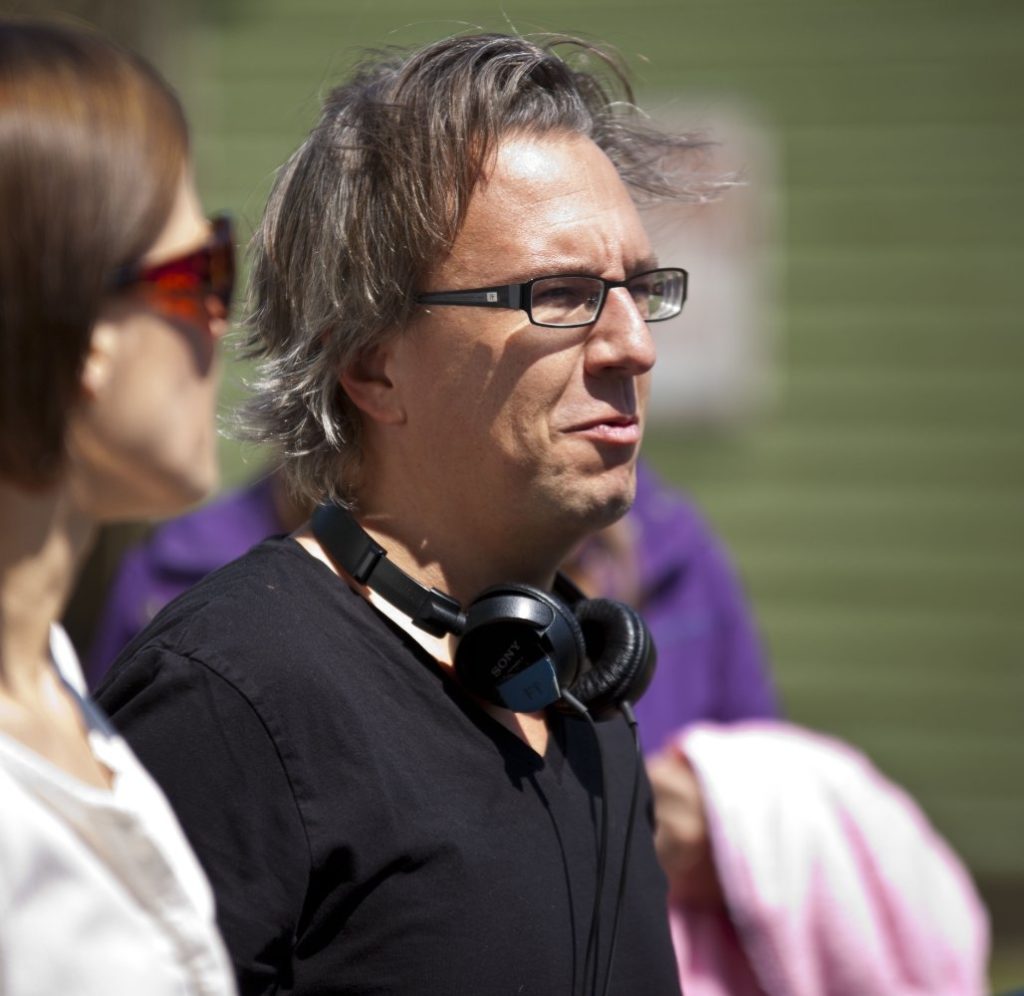Because I follow the life and career of Tammy Gillis so closely, I was well aware of her current film, Menorca. Being the indie film champion that I am, I did my homework and discovered who the writer and director was–John Barnard. Recently, I had the opportunity to ask him a few questions about how he got started in the business, his notable works, and even a hint at his upcoming works.
RH: What caused you to pursue a career in entertainment?
JB: For me, filmmaking began with picking up a friend’s camcorder the first time and simply starting to make movies. It was one Saturday a long time ago, I think I was thirteen. From that moment on, I knew there was no other option, and aside from some part-time jobs in university, I’ve never wasted a moment pursuing anything else.
You have done a wide variety of jobs in the business. What kind of training have you received and/or how did you learn to do these jobs?
I have a university arts-style degree in film, but back in the 90’s, most of the study was theoretical. So for all the hands-on parts that I have done in the business, it’s been almost all self-taught. That means I’ve made many, many mistakes and failed at all kinds of things. It’s a difficult way to learn, but I think more rewarding because every part of your brain has a sort of muscle memory of instinct for what it needs to do. It’s similar to music. I’m learning to play the guitar right now and it takes a lot of time to train my hands to play the right fret. But once you learn that way, mentally and physically, it’s hard to forget.
What was your first professional job in the business? What are your memories of that job?
I worked several different crew jobs in a small capacity, like some lighting, and I even did sound recording once. I wasn’t really good at them, but I learned enough about what was possible in these jobs, which I think helps me work faster as a director now.
Most of your work has been in indie film. Why did you go that route? Why do you think that the indie film community is growing so fast? What are the positives and drawbacks of indie film?
I think it’s because the stuff I’ve been most interested in has been self-start projects. Something that would never see the light of day unless I collected the pieces and put them together myself through my own office. Maybe it’s happening that way for people because of technological change. The downside of this is that film studies is the new English degree and everyone with an iPhone is a filmmaker now. It’s even worse than my generation with camcorders twenty years ago, and attention spans are shorter.

The Sheepdogs Have It
John Barnard, Dave Gaudet, Leot Hanson, Ryan Gullen, Sam Corbett, Ewan Currie
© Compelling Beard Films Inc.
One of your more well-known works is your documentary The Sheepdogs Have At It. Why did you choose to do this documentary and how was it received? Any memorable moments from the filming of this one?
That film landed on my lap because another guy had proposed it, but then suddenly was unable to do it. So I was hired. I wasn’t familiar with the band and I had to start shooting right away, which was a bit of a roller coaster ride. I had a remarkable evening filming with the band in New Orleans on Halloween, which is as busy as Mardi Gras on Bourbon Street. For a bunch of reasons, mostly personal, that night was a very important one for me. I was going through some personal grief from losing someone very close to me and New Orleans with the Sheepdogs was the place where the healing started. I don’t think the guys in the band knew how deep the situation was for me, but I think the magic of it shows in that part of the film.
Please tell us about the series Escape or Die. How did you get involved with this show? Any word on whether another season will happen?
Escape or Die is a documentary series that follows a Canadian escape artist named Dean Gunnarson as he does gigs around the world. He’s awesome, maybe the most incredible live performer I’ve known. In every show, he goes to a new place to perform, which means he gets chained to something dangerous with only a short time to get out before potential calamity befalls him. So there’s real danger. He really is in the circumstances…like once in China, we chained him to a roller coaster track and he had to escape before the car came rolling over him. I was one of the co-creators and directed eight episodes. We shot all over the world. Most of the time I was completely stressed out worrying about our star’s safety, but it didn’t bother him a bit.
Unfortunately there was only one season ordered, but it did really well and we’ve got a list of a dozen more escapes if anyone reading this wants to order season two.
Menorca is currently on the film festival circuit and getting a lot of recognition. Where did the idea for that film come from? How did Tammy Gillis end up joining the cast? Why do you think this film has resonated with the viewers?
I’m interested in stories where characters make less than rational decisions, resulting in unusual predicaments, and then they take the least logical path to a solution. That’s the way people operate in life so it shouldn’t be that foreign, but for some reason everything in films is supposed to be logical. I liked this idea of a mother who was fired by her child (which of course can’t really happen), but she makes the choice to submit to this exile he’s ordered her into. And then she arrives at the solution which is basically dropping a rock in the ocean. The narrative of Menorca connects these things.
I’ve know Tammy for years. A long, long, long time. We met when I was making one of my earliest short films. She was a waitress at a sushi place in Winnipeg where I ate all the time, and I cast her in the short just based on meeting her there. So we did that short film (I’m not allowed to talk about how long ago it was, but you can look it up) and we always stayed friends. When she heard I was doing Menorca, she asked to read for it. She skipped right past the casting people and asked to tape an audition for me. That’s what I probably should have done the first time years ago instead of just ordering more sushi. When I saw her tape, there was no doubt Claire had to be her.
If it has resonated with people, I think it’s because of the same things that drew me to it originally. The main thrust of my approach generally is to engineer narratives that haven’t been widely explored and hopefully go to new places. It’s a strange animal this movie, and I suspect that’s turned some people off. But people who are willing to cross over into its universe usually seem pretty pleased with the experience.
Any other upcoming works you can mention?
This year I’m making a feature-length music documentary about Randy Bachman from Bachman-Turner Overdrive, which was one of the biggest bands of the 70’s He’s unstoppable and still making music. Now I’m making this movie about him. It’s very much a rock doc like the Sheepdogs, but with substantially more story.
What is your advice to young people who wish to enter the TV/film industry?
Always be nice. You don’t have to put up with a-holes, but it’s not necessary to turn into one of them.
If you could have dinner with three people, living or dead, whom would you choose and why?
I’d take any three centenarians you could send me who have some stories to tell. Old people are have all kinds of amazing stories and experiences and if I can absorb any of it during my life, I’ll be happy.
I always appreciate those like John, who think outside the box. As one who has been devalued and ridiculed my entire life for not doing what my peers deem as acceptable, I suppose I am consistently drawn to those who “march to the beat of a different drum.” I admire John’s outlook on film and the way he explores stories in unique and unusual ways. Moreover, the fact that he recognizes the value of being nice to everyone in the business and gleaning wisdom from the older generation causes John to rise even higher in my estimation. For him, filmmaking is a passion in which he tells a story in such a way that it causes the viewers to think in an unconventional way. And in a society where conformity is king and cookie cutter ideas are often lauded, his viewpoint is a breath of fresh air. While I have not had the opportunity to view any of his works to date, this is one time when reputation and what others say about a person carries a great deal of weight with me. I say that if Tammy thinks he’s a fantastic filmmaker, a stellar person, and a true professional, that’s enough of a recommendation for me. Furthermore, his responses are authentic, humble, and certainly pragmatic. He has no grandiose views of his self-worth, and he comprehends the value of community and being a team player. Therefore, I ask that all my readers consider visiting the links below and even perchance following him on social media. Without indie filmmakers like John, our movie choices would be quite limited in the cinema, and even if his films are not necessarily your cup of tea, there is no denying that he is one of those trailblazers who is continuing to find new ways of telling stories in the world of entertainment. And for that, he has my eternal gratitude, and I hope that I will have the opportunity to watch one of his works very soon!
FOLLOW JOHN
Twitter (Fairpoint Films)
Twitter (Personal)
2 Comments
-
thisis a great interview, thank you so much for it
-
Author
John was and is truly a talented man, and it was a pleasure to interview him. Thank you for stopping by and commenting.
-








